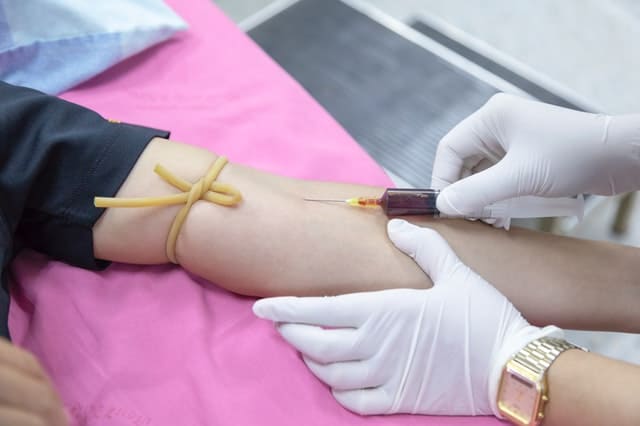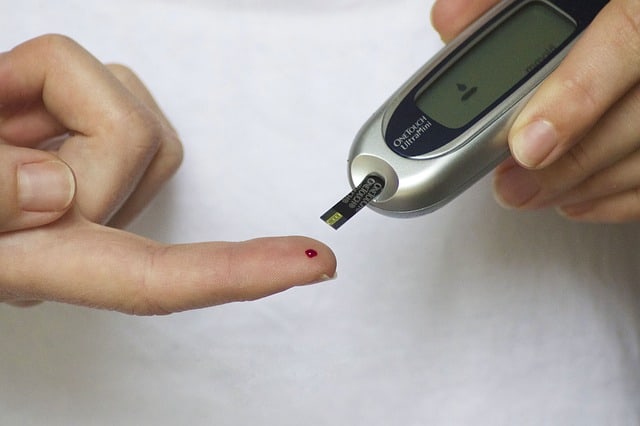Diabetes Test – Blood Test for Diabetes
We start with a discussion of the types of diabetes that are affecting us before knowing about the tests associated with them. Blood Test for Diabetes or Diabetes Test needs to be done periodically when you reach the mid-age for early detection and prevention. One can take immediate action if diabetes gets diagnosed early to prevent its further progression.
Type 1 Diabetes:
Insufficiency in the production of insulin results in the occurrence of diabetes of type 1. With no complete cure available, type 1 diabetes demands treatments for a lifetime. Not enough insulin is available to the body, which makes the blood glucose levels go high unless managed. Islets cells of the pancreas inability and damage to the pancreatic cells, and insulin intolerance are the common reasons apart from the physical reasons our lifestyles offer. From polyuria, and polydipsia to the most complicated issues i.e., diabetic neuropathy, diabetic retinopathy, ketoacidosis, and affecting vital organs like kidneys, heart, and dental it has to hold on to everything. A type 1 diabetic patient is recommended on insulin dosage for the rest of their life.
Type 2 diabetes:
The most common and chronic kind of diabetes seen in our country is the diabetes of type 2. The blood sugar levels rise as in type 1, the cells become highly resistant to insulin. This drastically pushes up the glucose levels in the bloodstream, as the cells don’t sink in anymore. This demands more and more production of insulin from the pancreas. Pancreas inefficiency to supply the high demand ends up in type 2 diabetes. Obesity, diet, lifestyle, harmful habits, sedentary life, etc., all collectively, help it. From the stage of signs itself, diabetes 2 should be checked on.
Pre-diabetes:
Prediabetes is a warning bell when you are on your way down to diabetes. This doesn’t mean you are the next victim, you can give back diabetes at this stage. Prediabetes shows high blood glucose levels but not high as to be called diabetes type 1. Changing your lifestyle, maintaining a healthy diet and weight, monitoring your blood sugar levels, and checking on your doctor regularly can help prevent prediabetes further advancements. If PCOS and thyroid issues are already in your health check, then prediabetes is something that you should pay attention to.
Gestational diabetes:
It’s the rising of blood sugar levels in pregnancy is gestational diabetes. It is more likely to take on in the second trimester of gestation. It can simulate effects on the mother and baby. But early detection and diagnosis can manage diabetes well. Women with higher body mass index, previous birth with overweight babies, family history, and Asian lineage have greater risks of gestational diabetes. Its complications include preterm births, stillbirths, overweighing babies hyperglycemia, polyhydramnios, and preeclampsia.
| https://ws-in.amazon-adsystem.com/widgets/q?ServiceVersion=20070822&OneJS=1&Operation=GetAdHtml&MarketPlace=IN&source=ss&ref=as_ss_li_til&ad_type=product_link&tracking_id=ayurveda0b-21&language=en_IN&marketplace=amazon®ion=IN&placement=B079WYZB6F&asins=B079WYZB6F&linkId=e42e370c584495bf884e624370c92aad&show_border=true&link_opens_in_new_window=true | Buy the Best Dr Trust (USA) Fully Automatic Blood Sugar Testing Glucometer Machine with 60 Strips and Digital Thermometer |
What are the causes of diabetes?
Talked about the types in which diabetes can affect a person, and the chances of diabetes can be discussed as follows.
Obesity:
Overweighing brings embarrassment and also diabetes. 85% of diabetic people are likely to be obese and with a high body mass index, reducing body weight by a little can beat insulin tolerance considerably. Good physical activity, a controlled diet, and a check on obesity can substantially revert back diabetes. Neglected weight issues may lead to cardiovascular issues, neuropathy, and kidney failures.
Age:
The adult generation of age between 45-60 used to be under threat in the early 2000s as per researchers. But the new cases of diabetes recorded shows that teenagers and adolescents 18 years and above are no exception in being the victim. Type 1 diabetes is noticed in children along with young adults.
Gestational diabetic women:
A woman who has already been diabetic in their earlier pregnancy is most likely to be affected by diabetes. Women who have already given birth to an overweight baby can develop diabetes in their second gestation easily. Family background with diabetes can also be a chance to add to the risks of diabetes onset. Late pregnancies, at an age above 25 years, obesity, and no physical activity can attract gestational diabetes.
Prediabetes:
As told already, prediabetes can change into chronic diabetes in no time if not paid enough attention to the chances of becoming type 1 diabetes is at high risk with our sedentary lifestyles and adaptation to urbanization. Your body mass index getting high, your fast gaining weight, and stressful lifestyles are the things to be paid attention to. Prediabetes is the only alarm to the setting of type 2 diabetes which is a long-term ailment.
Family history:
Families with a great history of diabetes are observed in the Indian population. This happens fur to the overweight, obesity, food style, and habits in the family. They are likely to pass on the disease along with the assets. Non-vegetarian diets and heavy bodies are the root cause.
Food habits:
Processed and refined foods, high carbohydrates and quickly fried junk foods, no vegetables and fresh fruits in the diet, bacon, red meat, high fats and cholesterol developing food, etc., harmful and canned beverages, carbonated sodas, etc., cause the worsening of diabetes. Mediterranean diet and dietician-stipulated diabetic diet plan based on the individual is given to help ease diabetic complications through food.
Diabetes Test – Blood Test for Diabetes
Screening and diagnosis of a person need to be done from the starting itself. Now with the growing number of victims and high prevalence of diabetes, the screenings are more seen in teens and young adults too. Most women do not take it seriously note to get screened/ diagnosed for diabetes.
Prediabetes tests:
HbA1c test:

Also called the hemoglobin A1c test. This is done to evaluate your blood sugar levels from the last couple of months or even older. The number of blood sugars attached to this hemoglobin is measured in the A1c test. This assessment is based on the fact that with higher blood glucose levels, higher will be amounts of sugars attached to the hemoglobin. The results in the test being <5.7% is normal, between 5.7 – 6.4% is prediabetic, >6.5 indicates type 2 diabetes.
A1c doesn’t work well in pregnant or patients with uncommon hemoglobin.
Other names are Glycated hemoglobin, glycohemoglobin, hemoglobin A1c, A1C test
Fasting blood sugar test/FBS:

A fasting blood test is done straight after 8 hours on an empty stomach or overnight. The blood glucose levels ranging from 100 mg/dl or 5.6 mg/dl are normal, 100-125 mg/dl is prediabetic and >126 mg/dl will fall under diabetes type 2. The prediabetic range of blood glucose is considered an impaired fasting glucose level.
Oral glucose tolerance test:
Suggested for pregnant women as the A1C doesn’t for them. It is a kind of fasting blood sugar test. A sugary solution is given after a couple of hours your blood glucose levels are tested.
A sugar level of <140 mg/dl is considered normal and 140-199 mg/dl is considered prediabetes. It’s better to be checked the A1c and fasting blood sugar on a regular basis after you hit the 40 age mark.
For testing type 1 and type 2 diabetes there can be a few more common tests. Fasting plasma glucose test, A1c test, and random plasma glucose.
Fasting plasma glucose:
Generally done as a fasting test, in the mornings. It tracks the glucose levels at each point in time.
Random plasma glucose:
When you are already traced with diabetes symptoms, your doctor goes with this test. This doesn’t need any fasting. It’s a confirmation test for diabetes.
Gestational diabetes:
Pregnants are suggested with the glucose challenge test and oral glucose tolerance test.
Glucose challenge test:
Suggested in the second half of pregnancy in general as the chances of gestational diabetes onset are high. No fasting is needed as an oral glucose tolerance test. A glucose screening test happens by giving a sugary liquid followed by a test after an hour. If it lies between 135-140 mg/dl you will be advised orally glucose tolerance test.
Chances of gestational diabetes:
- A pregnant woman who has experienced an earlier pregnancy with gestational diabetes will be at risk of getting another.
- If the firstborn or the earlier born child was obese/ or overweighed.
- Family history has shown any traces of diabetes.
- Pregnancy at the age of 28 or above, can draw diabetic complications.
- Asians and Africans, and tribes other than native speakers can catch up with diabetes easily.
- Overweight women are at high risk of diabetes.
- Hypertension is also a deciding factor, for the onset of gestational diabetes.
Conclusion:
Diabetic treatments are for a lifetime if detected. Indeed there are certain possibilities of prevention, reverting back are avoiding the complications, if diagnosed early. The tests used to diagnose diabetes are of fewer complications and high accuracy. Getting tests done and monitoring blood sugar levels regularly keeps your health in place. Most of the diabetic cases in our country seen in women are due to a lack of awareness and negligence in being tested and diagnosed. The women don’t pay attention to the alarming signs unless gone through a diabetic test during pregnancy. Normal diabetic health in both men and women is so far not given importance such that most diabetics do without being diagnosed. A wide range of diabetes tests is assigned for normal to pregnant in order to scale the extent more accurately and easily.
Reference:
